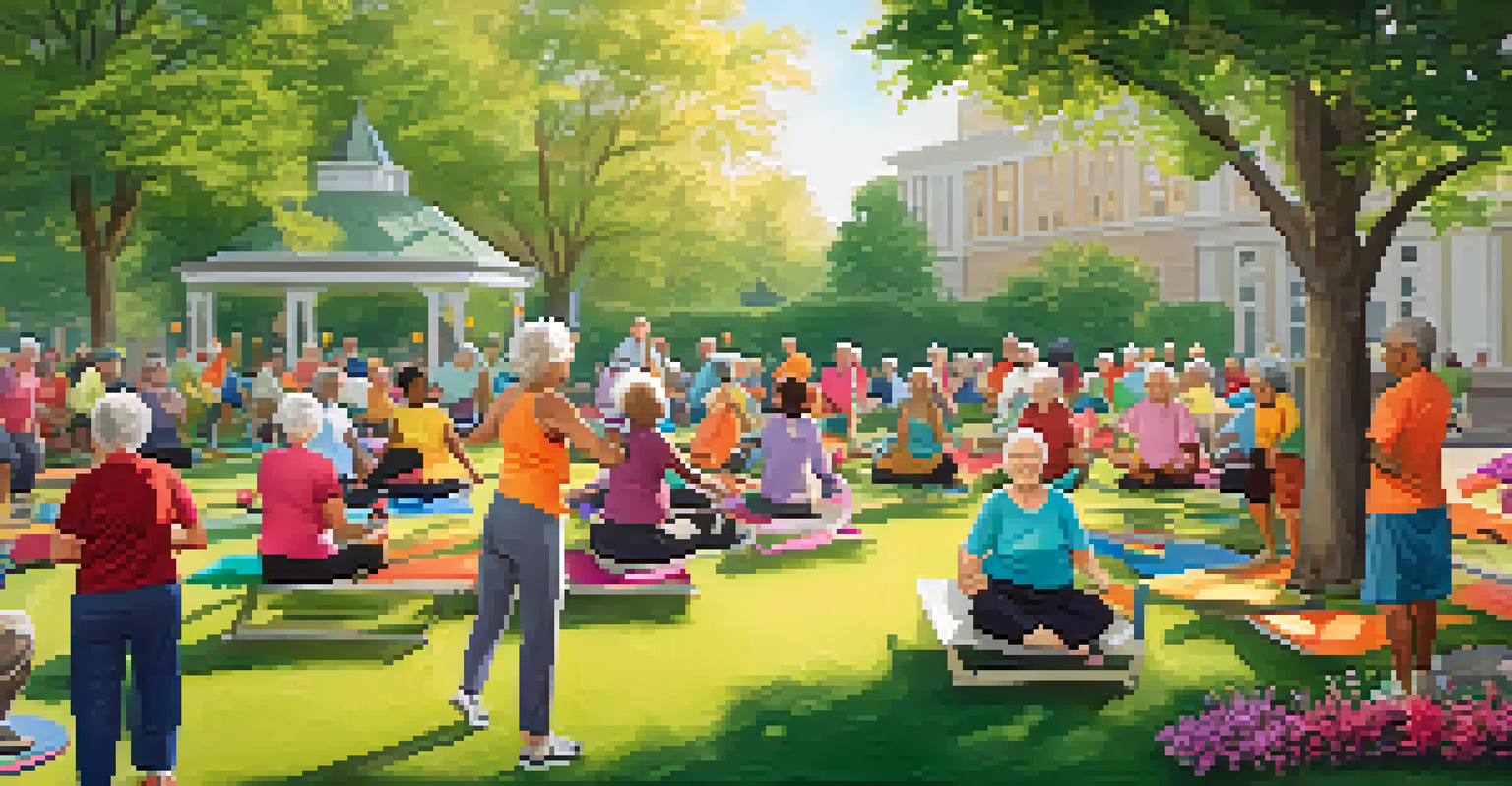Cognitive Health and the Aging Brain: What to Expect

Understanding Cognitive Health in Older Adults
Cognitive health refers to the ability to think, learn, and remember effectively. As we age, it’s natural to experience some changes in these cognitive functions. While some decline is expected, many older adults maintain a level of cognitive health that allows them to lead fulfilling lives.
The greatest discovery of my generation is that a human being can alter his life by altering his attitude.
It’s important to recognize that cognitive health encompasses various aspects, including memory, attention, and decision-making. Just like physical health, cognitive health can be influenced by lifestyle choices, such as diet, exercise, and mental stimulation. Engaging in activities that challenge the brain can help maintain cognitive function as we age.
Moreover, staying socially active is another key component of cognitive well-being. Interacting with others not only enriches our lives but also provides mental challenges that can help keep our minds sharp.
Common Changes in the Aging Brain
As we age, our brains undergo natural changes that can affect cognitive functions. For instance, there may be a gradual decline in processing speed and working memory, which can make multitasking feel more challenging. However, many older adults find that they excel in areas like vocabulary and wisdom, drawing on a lifetime of experience.

Additionally, certain brain structures may shrink over time, impacting areas related to learning and memory. This might sound alarming, but it’s essential to note that not all cognitive functions decline equally. In fact, some aspects of cognition can remain stable or even improve with age.
Cognitive Health Affects Quality of Life
Maintaining cognitive health through lifestyle choices such as diet, exercise, and mental stimulation is essential for leading a fulfilling life as we age.
Understanding these common changes can help ease concerns about cognitive decline. It’s crucial to approach aging with a balanced perspective, recognizing both the challenges and the strengths that come with experience.
Factors Influencing Cognitive Aging
Several factors can influence cognitive aging, and they often intertwine in complex ways. Genetics play a role, but lifestyle choices can significantly impact cognitive health. For example, a balanced diet rich in antioxidants, omega-3 fatty acids, and vitamins can support brain function.
Aging is not lost youth but a new stage of opportunity and strength.
Physical activity is another vital contributor; regular exercise increases blood flow to the brain and promotes the growth of new brain cells. In fact, studies show that even moderate exercise can help stave off cognitive decline, making it a key component of a healthy aging strategy.
Finally, mental engagement through puzzles, reading, or learning new skills can also help keep the brain active. The more we challenge our minds, the more we can bolster our cognitive resilience as we age.
The Role of Nutrition in Cognitive Health
Nutrition is a fundamental pillar of cognitive health, particularly as we age. A diet rich in whole foods, such as fruits, vegetables, whole grains, and lean proteins, provides essential nutrients that support brain function. For instance, foods high in antioxidants help combat oxidative stress, which can damage brain cells.
Specific nutrients, like omega-3 fatty acids found in fish, have been linked to improved cognitive function and a lower risk of dementia. Incorporating these healthy fats into your diet can be as simple as enjoying salmon or walnuts.
Social Connections Enhance Cognition
Strong social interactions not only provide emotional support but also contribute to sharper cognitive function, helping to slow down cognitive decline.
Moreover, staying hydrated is crucial; even mild dehydration can impair cognitive abilities. Therefore, paying attention to dietary choices and hydration can be a powerful way to support cognitive health throughout the aging process.
Mental Stimulation and Cognitive Resilience
Engaging in mentally stimulating activities is vital for maintaining cognitive resilience as we age. Activities like crossword puzzles, reading, and playing musical instruments can help keep the brain active and engaged. The idea is similar to physical exercise: the more you work your brain, the stronger it becomes.
Lifelong learning, whether through formal education or self-directed study, can also play a significant role in cognitive health. Many seniors find joy in taking classes or exploring new hobbies, which not only stimulates the mind but also fosters social connections.
Additionally, learning new languages or skills can create new neural pathways, enhancing cognitive flexibility. By embracing lifelong learning, we can help ensure our minds remain sharp well into our later years.
Social Connections and Cognitive Function
Social interactions are not just enjoyable; they’re also crucial for cognitive health. Maintaining strong connections with friends and family can provide emotional support and mental stimulation. Engaging in conversations, sharing stories, and participating in group activities can help keep the mind sharp.
Research has shown that individuals with robust social networks often experience slower cognitive decline. This is likely due to the cognitive challenges that come with socializing, such as navigating conversations and remembering details about others.
Recognizing Cognitive Decline Signs
Being aware of warning signs like significant memory loss or personality changes is crucial for seeking timely help and managing cognitive health.
Moreover, participating in community activities or volunteering can provide a sense of purpose and belonging, both of which are linked to better cognitive outcomes. Therefore, nurturing social connections is a key strategy in promoting cognitive health as we age.
Recognizing Warning Signs of Cognitive Decline
While some cognitive decline is normal with aging, it’s essential to recognize when changes may signal a more serious issue. Warning signs can include significant memory loss, difficulty completing familiar tasks, or confusion about time and place. If these symptoms arise, it’s crucial to consult a healthcare professional.
Another red flag is changes in mood or personality, such as increased anxiety or withdrawal from social activities. These changes may indicate underlying issues that need addressing. Early intervention can make a significant difference in managing cognitive health.

Being proactive about cognitive health means not only understanding what’s normal but also knowing when to seek help. Regular check-ups and discussions with healthcare providers can play an essential role in monitoring cognitive function and addressing any concerns.